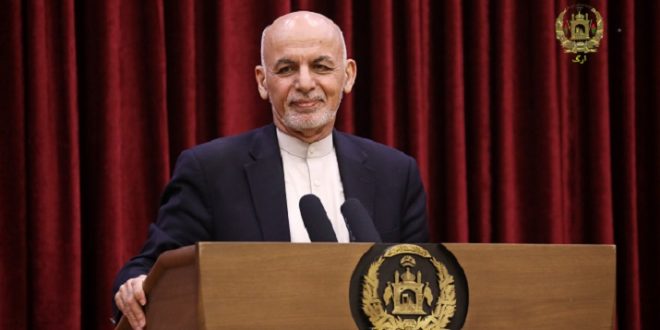In a recent interview with the London-based The Times newspaper, President Ashraf Ghani warned that the release of the final batch of the Taliban inmates, who he said were notorious drug kingpins and dealers, would lead to a spike in the drug trade in the UK and European nations. Ghani said the West would bear the responsibility if a new wave of narcotics hits the world. However, the Taliban utterly deny that their imprisoned fighters were in any way involved in the drug trade. They vehemently invalidate Ghani’s remarks, boasting that during their regime, the cultivation of narcotics in Afghanistan was ‘zero’. The insurgent group put all the blame on the US and the Afghan government for Afghanistan topping the list of most-drug-producing countries over the past 19 years. It seems both sides are attempting to gain leverage once again through utilizing political propaganda: one is trying to pursue red herrings and divert blame onto the world if anything untoward happens following prisoner release while the other uses baseless statements and twisted facts to show themselves as guardian angels. The Taliban’s claim that drug cultivation was naught in their era is unfounded. It’s because established reports show that it was never zero, apart from the fact that Afghanistan witnessed a temporary significant decrease due to a short-lived ban enforced in 2000 and 2001. Based on reliable estimates of the United Nations Office on Drugs and Crime (UNODC), opium production peaked at over 4,600 metric tons during the early years of the Taliban rule (1996-1999). However, it’s said that opium production plunged significantly, from approximately 3,726 metric tons in 2000 to 185 metric tons in 2001 at the time. Comparing the past situation with the present, the US Office of National Drug and Control Policy figures show that opium production in 2019 was at around 6,700 metric tons. This means the Afghan government also has nothing tangible to show off in terms of being successful in the war on drugs. The drug trade is still ongoing unabatedly. One of the reasons for that is the lack of governance and control in contested areas. Meanwhile, the Taliban purport themselves to be against drug cultivation but we have witnessed reports that show the narcotics economy in Afghanistan currently finances the war machinery of the insurgents. The warring sides are only throwing dust into Afghans’ eyes because Afghans know that they are trying to gain leverage. In the meantime, they are also trying to divert focus on the main key priority – the launch of intra-Afghan talks.

 Afghanistan Times
Afghanistan Times



